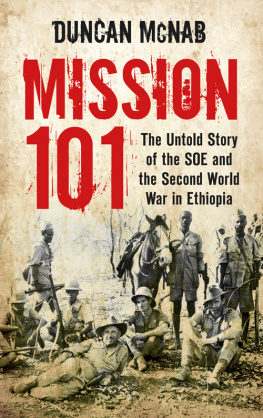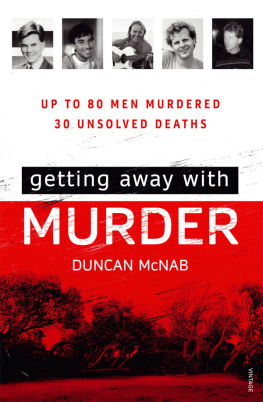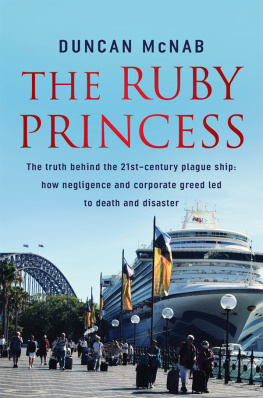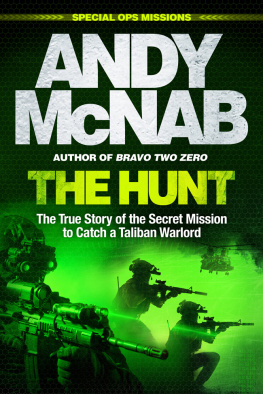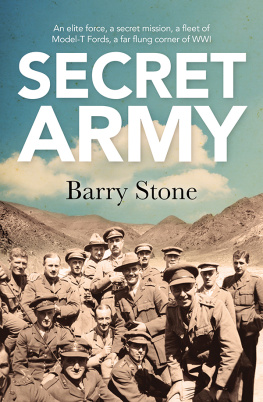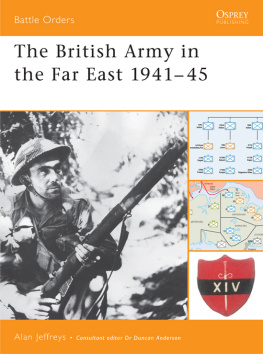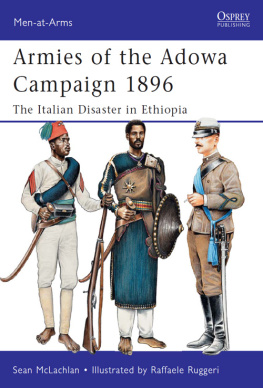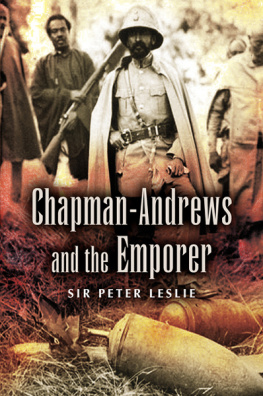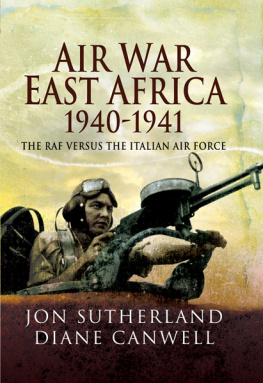
To the late Ken and Grace Burke, my
thanks for adding lashings of zest to what
would otherwise have been a fairly normal childhood
Researching a slice of history that wasnt well reported at the time was a fascinating challenge, and I am deeply in debt to the terrific people who gave me a hand. My apologies to anyone I have inadvertently omitted, and I can only blame my fading memory and perhaps an excess of wine and the odd martini (for medicinal purposes) on my recent travels.
Coming to grips with Ethiopia and the logistics of getting about were made much easier by Jason Andean and his merry band they also did a fine line in hospitality too. The Land Cruiser is infinitely preferable to camels and mules.
John Mellors of the Anglo Ethiopian Society in London for pointing me to the various experts on Ethiopia.
Andrew and Martha Chadwick for their guidance and advice on the patriots.
Steve Kippax for his insight on the Public Record Office in Kew and Craig Brown for his expertise on the SOE.
Allan Miles for knowing who to call and giving me an introduction.
Richard Pankhurst for his entertaining emails and advice on matters Ethiopian.
Martin Hislop and the Melba Suite in Kingston upon Thames always a fine place for peace, good conversation and one of those glasses of wine I mentioned earlier. The terrific staff at the Imperial War Museum in London and the Australian War Memorial in Canberra they make research a dream.
The staff at the Fryer Library at the University of Queensland for access to their treasure trove of information on Arnold Wienholt. The staff at Sydneys Mitchell Library and the State Library of NSW national treasures.
Diane Irving of the Trangie Historical Society.
Neil and Pam Body for their help with Ted.
Audrey Brown, Allan Browns wife.
Sarah Wynn for Bill Howells letters and memorabilia a pot of gold for a researcher.
David Burke (no relation to Ken) Bill Howells nephew for some anecdotes.
Adrian Burke and Lance Stewart for their help with our mutual uncle, Ken Burke.
Tom Miller for his advice on the scent of Sri Lanka when approached by ship.
Jenny Pearce of The Kings School for snippets on the former students.
To my aunt, the late Grace Burke, for wonderful storytelling up until her departure at 96.
As ever, my great thanks to my agent Lyn Tranter, and to everyone at Pan Macmillan for their simple brilliance in turning my meanderings into a book they help make writing the pleasure it is.
CONTENTS
1
On 1 September 1939, Hitlers forces invaded Poland. Two days later, at 11.15 a.m., Britains Prime Minister Neville Chamberlain made an unprecedented live broadcast on the BBC from the Cabinet Room at Number 10 Downing Street. He told the British people, and those tuning in around the globe:
This morning the British Ambassador in Berlin handed the German government a final note stating that, unless we hear from them by eleven oclock that they were prepared at once to withdraw their troops from Poland, a state of war would exist between us. I have to tell you now that no such undertaking has been received, and that consequently this country is at war with Germany.
He finished the broadcast saying, It is evil things we will be fighting against brute force, bad faith, injustice, oppression and persecution and against them I am certain that right will prevail.
Chamberlains broadcast was followed by a broadcast from Buckingham Palace, in which King George VI told his people:
In this grave hour, perhaps the most fateful in our history, I send to every household of my peoples, both at home and overseas, this message, spoken with the same depths of feeling for each one of you as if I were able to cross your threshold and speak to you myself. For the second time in the lives of most of us, we are at war. Over and over again we have tried to find a peaceful way out of the differences between ourselves and those who are now our enemies, but it has been in vain. We have been forced into a conflict, for we are called, with our allies, to meet the challenge of a principle which, if it were to prevail, would be fatal to any civilised order in the world.
Within minutes of the declaration of war, the first air-raid sirens were heard over England. The BBC fell briefly silent. During the silence, with many Britons believing a German air raid was imminent, a BBC journalist phoned New York, telling the expectant media pack that, Forty-five minutes ago, air-raid sirens broke the Sabbath morning. We are now sitting comfortably underground. The all-clear signal has been sounded and we will emerge into the sunlight to see what has happened. Luckily, the plane that prompted the sirens was a friendly one, a French aircraft whose pilot had failed to file a flight plan.
In Australia, the arrival of another war just over two decades after the alleged war to end all wars was not unexpected. Churches around Australia, then enjoying a far greater patronage than they do these days, were reporting record attendances, with prayers for peace being at the forefront of the days religious pursuits.
The Sunday papers were reporting the growing tensions surrounding the deadline of Chamberlains ultimatum to Hitler. French Prime Minister Edouard Daladier was quoted as observing dramatically, and with an accurate glimpse of the near future, that it was a question of saving the world. On a lighter note, the father of Sydneysider and soon-to-be opera sensation Joan Hammond told the Telegraph that his daughter was about to hit the big-time in Vienna. He said:
I am not at all worried. Joan has just signed a 12-month contract to sing at the Grand Opera House [in] Vienna. Part of her contract is free passage through Germany at any time. She could get to London if trouble started.
Luckily for Joan she was still in London, having just appeared at the Proms with Sir Thomas Beecham. Her Vienna career would be on hold for a few years. Japan, the papers assured us, had declared it would stay neutral.
On the soap boxes in Sydneys Domain Australias answer to Londons Hyde Park Speakers Corner Mrs Adela Pankhurst Walsh was in full flight decrying the impending war and urging peace with Germany. She was the daughter of British suffragette Emmeline Pankhurst and sister of Sylvia Pankhurst, a vocal supporter of Ethiopian independence following its invasion by Italian forces almost four years earlier. Adela had emigrated to Australia in 1914 and married Tom Walsh of the Federated Seamens Union of Australasia. That Sunday, she was speaking on behalf of the Guild of the Empire, an anti-communist group she had founded, and was doing a fine job offending the sensibilities of Sydneysiders by insisting that Britain and, by association, Australia should not fight in Europe. In her mind, an anti-communist like Hitler and his cohorts was preferable as an ally, not an enemy. The crowd responded by hissing loudly. Mrs Pankhurst Walsh would end up being interned in 1942 for her advocacy of peace with Japan not a popular move in a post-Pearl Harbor world.
By nightfall on that crisp early-spring day in 1939, most of Australia had settled in for a quiet Sunday night at home. On the menu were sandwiches made from the leftovers of the traditional Sunday roast lunch. Pubs were closed, but for those who hadnt thought to stockpile, the sly groggers that plied their trade out of discreet back doors could always be relied on for supplies. Though television had had its first public outing at that years New York Worlds Fair it hadnt made it past shock-and-awe and into production. Radio with its news, serials, quizzes and music was still the Australian familys most popular form of in-home entertainment. It was at 9.15 that Sunday night that the ABC and all commercial networks interrupted their programming for a special broadcast by Prime Minister Robert Menzies.
Next page
